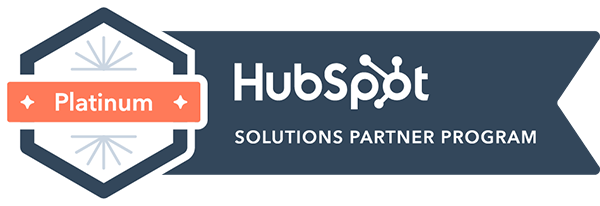 Most B2B companies are competing in highly saturated and hyper-competitive spaces.
Most B2B companies are competing in highly saturated and hyper-competitive spaces.
Sameness is a slow death. When prospects can't tell businesses or the services they offer apart, it becomes a race to the bottom on price.
Everyone claims to offer “great service,” “reliable support,” and “customized solutions.”
The problem? None of that actually differentiates you. It’s table stakes.
In a world where competitors can copy your features, pricing, and even your messaging overnight, your most important competitive edge is differentiation — the ability to clearly show what makes your business meaningfully different in a way that matters to your ideal buyers.
And the payoff for doing it right isn’t just short-term visibility. Differentiation compounds over time.
1. It Builds Brand Equity That Outlasts Campaigns
Most marketing tactics fade fast. You launch a campaign, get a bump, then start from scratch again next quarter. But when you invest in differentiation, you’re building something bigger than a campaign: you’re building brand equity.
When your positioning is clear, your market knows who you are and what you stand for. That means:
1. Your message cuts through noise faster.
2. Prospects come to you already pre-sold on your value.
3. Your sales team spends less time convincing and more time closing.
Over time, this compounds. Every touchpoint reinforces your distinct identity, making you the obvious choice—not the cheapest option.
2. It Makes Your Marketing (and Budget) More Efficient
Without differentiation, every marketing decision feels like a guessing game. Should we post more? Run more ads? Redesign the website?
When you know exactly what makes you different—and who cares—you can stop wasting money on scattershot tactics. Differentiation acts as your filter, helping you say no to things that don’t align and yes to things that amplify your position.
For example:
1. Instead of targeting every company in your industry, you focus on the ones who value your unique expertise.
2. Instead of writing generic blogs, you produce content that speaks to your prospect's niche pain points.
3. Instead of chasing vanity metrics, you track the KPIs that actually matter for your business model.
That kind of focus leads to lower CAC, higher ROI, and a marketing machine that runs lean and smart.
3. It Future-Proofs Your Growth
Markets evolve, technologies shift, and competitors catch up. If your advantage is only tied to what you do, you’ll always be vulnerable.
But when your advantage is based on who you are and how you do what you do you become future-proof. Differentiation gives you strategic resilience—the ability to pivot your offerings while keeping your identity intact.
That’s why the most successful B2B brands don’t just sell services—they sell a distinct point of view.
They make decisions faster, adapt quicker, and attract customers who stick around for the long haul.
What's Next
If you want predictable growth, you need more than marketing activity. You need a brand that means something to your market.
Differentiation isn’t just a marketing exercise; it’s a foundation. It helps inform your messaging, your offers, and even how you operate.




